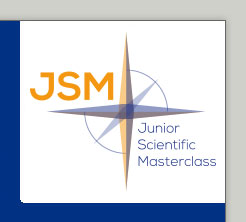Onderzoeksproject aanpassen
Projecten zijn uitsluitend aan te passen door bij het project behorende onderzoekers.
Geef via het uitrolmenu aan welke onderzoeker u bent. Nadat op u de button 'Edit project' heeft geklikt, wordt automatisch een e-mail verstuurd naar het e-mailadres van de onderzoeker die u heeft gespecificeerd.
In deze e-mail staat een link waarmee u het project kunt wijzigen.
Project properties
| Title | Outcome after traumatic brain injury - the role of biomarkers and imaging |
|---|---|
| Keywords | traumatic brain injury imaging, biomarkers outcome and cognition |
| Researchers |
J. van der Naalt prof. dr. ir. N.M. Maurits dr. B. Jacobs Prof. dr. J.M. Spikman |
| Nature of the research | Prospective follow-up study of patients with traumatic brain injury |
| Fields of study | neurology radiology traumatology |
| Background / introduction |
|---|
| Traumatic brain injury is one of the major causes of morbidity and mortality. Approximately one in 4 patients experience impairments interfering with resumption of activities and return to work due to persistent cognitive impairments with memory and concentration problems. The prediction of outcome in TBI is complex comprising both structural and functional aspects. Several factors are found to be predictive of outcome such as mechanism of injury and prehospital care. Also patient related factors such as coping and emotional distress are considered to influence ultimate outcome. In the acute phase after injury, markers of cerebral damage and inflammation can already be determined at the Emergency Department (ED). Structural CT-abnormalities often are missing but functional disturbances depicted by functional MRI are increasingly acknowledged to play an important role in ultimate outcome. |
| Research question / problem definition |
|---|
|
Three main projects are presently running on several topics that could further be explored in separate projects for individual students. I. UPFRONT-study: a prospective follow-up study of patients with mild traumatic brain injury of all ages in three level-1 centres in the Netherlands. II. AIM-TBI: prospective follow-up study on the relation of biomarkers of cerebral damage and stress with outcome (described in a separate project) II. ReCONNECT-study: a prospective follow-up study in patients aged 60 years or older with mTBI determining the influence of brain connectivity on outcome. |
| Workplan |
|---|
|
Data of patients with TBI are collected in a prospective cohort study from admission to the ED during one year post-injury. At several time intervals after injury complaints and impairments are evaluated with questionnaires. Various injury and care related variables are collected during admission comprising admission data, laboratory measures, CT- and MRI-data. These data are compared with data from a non head injury trauma control group and healthy volunteers. With fMRI-studies connectivity of brain networks is measured and related to complaints of patients. These fMRI-studies are combined with a working memory task to determine the relation with cognitive dysfunction and mental fatigue. Structural i.e. axonal injury is assesses with DTI and specific MRI-sequences. Outcome is determined at 6 months post-injury, with focus on work resumption. Research goals: 1. To determine whether it is possible to predict outcome with the application of new imaging techniques such as (f)-MRI. 2. To assess if specific biomarkers of brain damage determined in the acute phase after injury are associated with outcome and persistent complaints. 3. To investigate age-related differences in brain connectivity and outcome. 4. To determine if emotional distress is related to dysfunction of brain networks. |
| References |
|---|
|
• Early predictors of outcome after mild traumatic brain injury (UPFRONT): an observational cohort study. van der Naalt J et al. Lancet Neurol 2017;16(7):532-540. • The Default Mode Network as a biomarker of persistent complaints after mild traumatic brain injury: a longitudinal fMRI study. van der Horn HJ et al. J Neurotrauma 2017;34(23):3262-3269. • The association between microhaemorrhages and post-traumatic functional outcome in the chronic phase after mild traumatic brain injury. de Haan S et al. Neuroradiology 2017;59(10):963-969. • Patients at risk of suffering from persistent complaints after mild traumatic brain injury: the role of coping, mood disorders and posttraumatic stress. Scheenen ME et al. J Neurotrauma 2017;34(1):31-37. • Post-concussive complaints after mild traumatic brain injury associated with altered brain networks during working memory performance. van der Horn HJ et al. Brain Imaging Behav 2016;10(4):1243-1253. |


